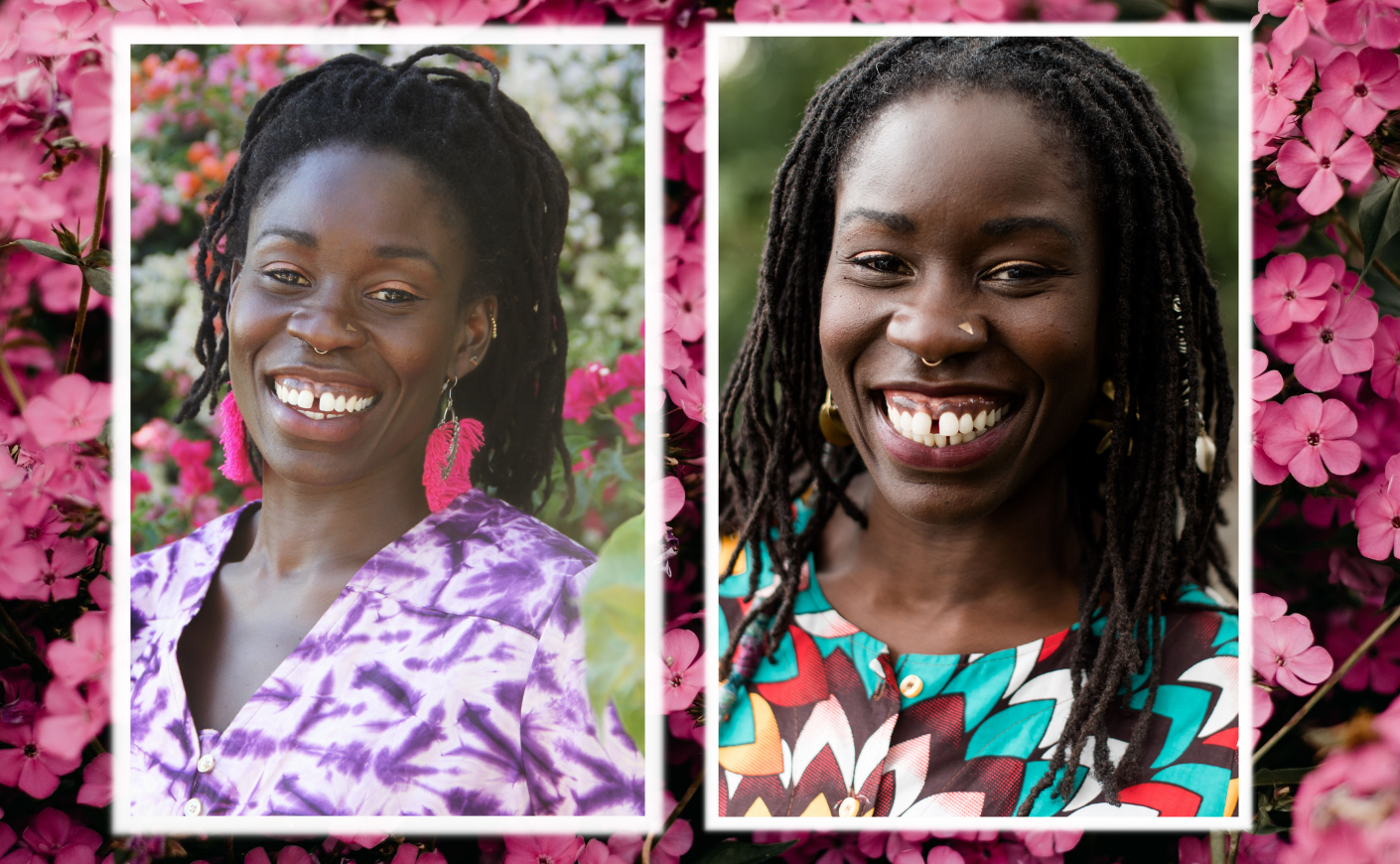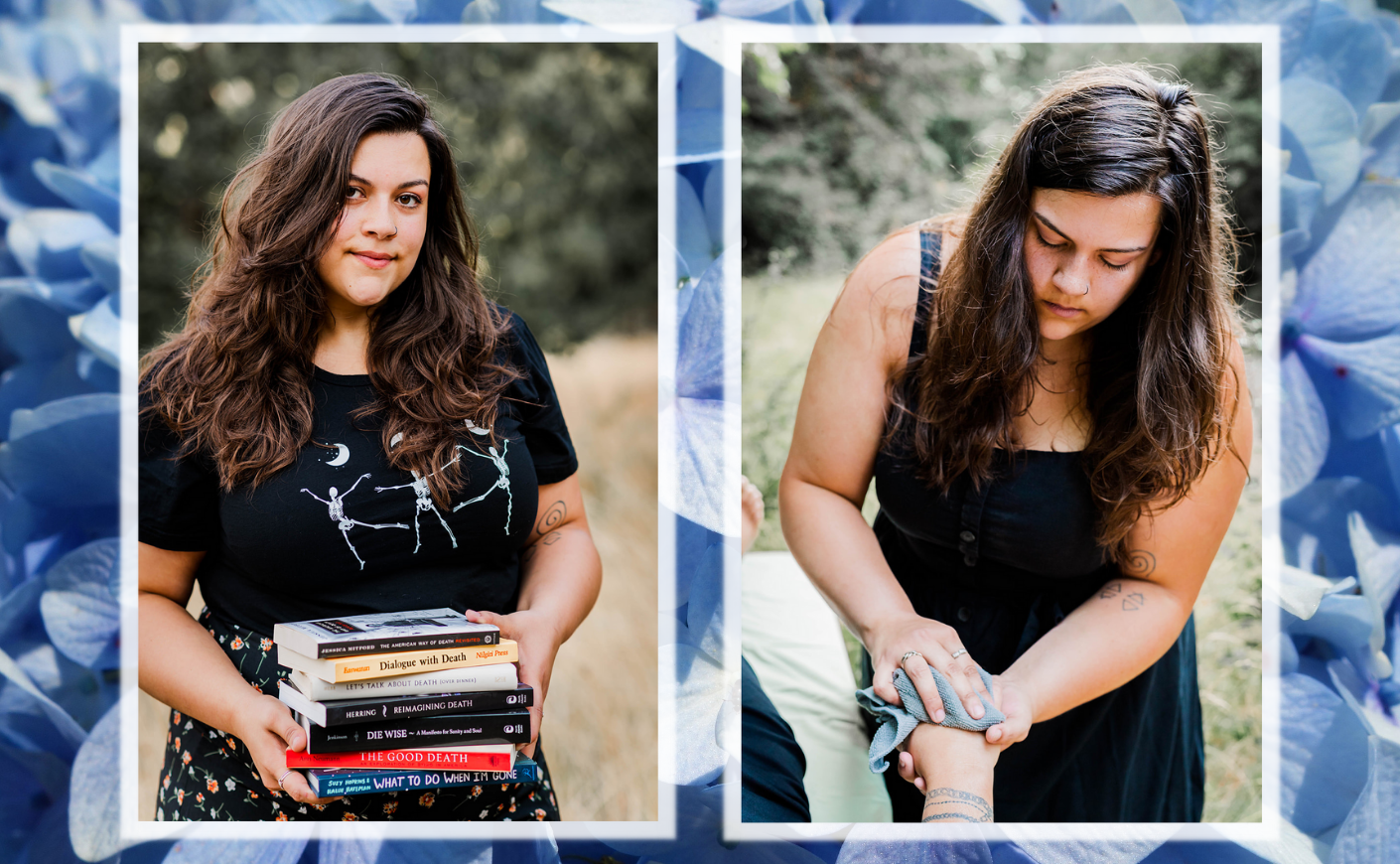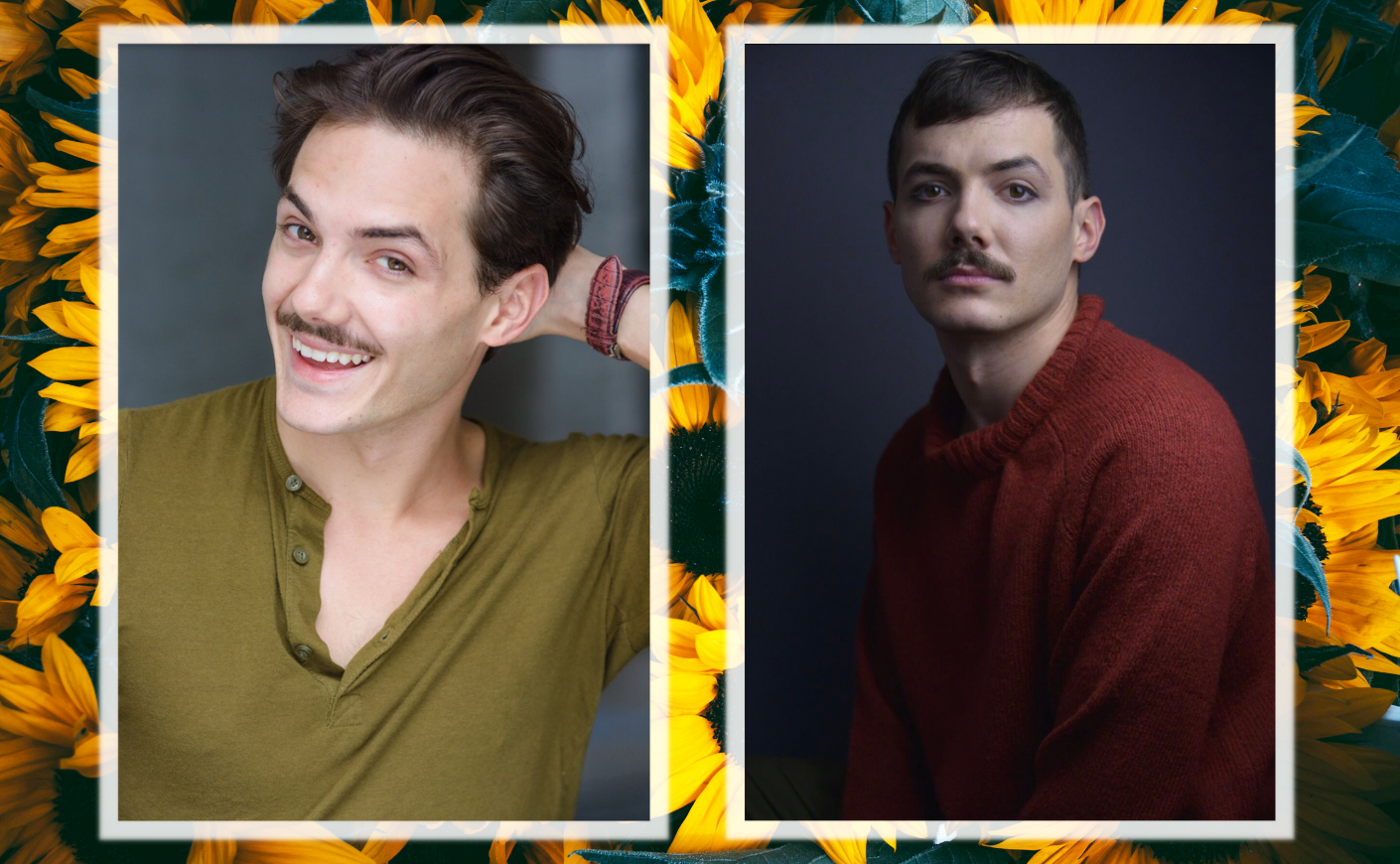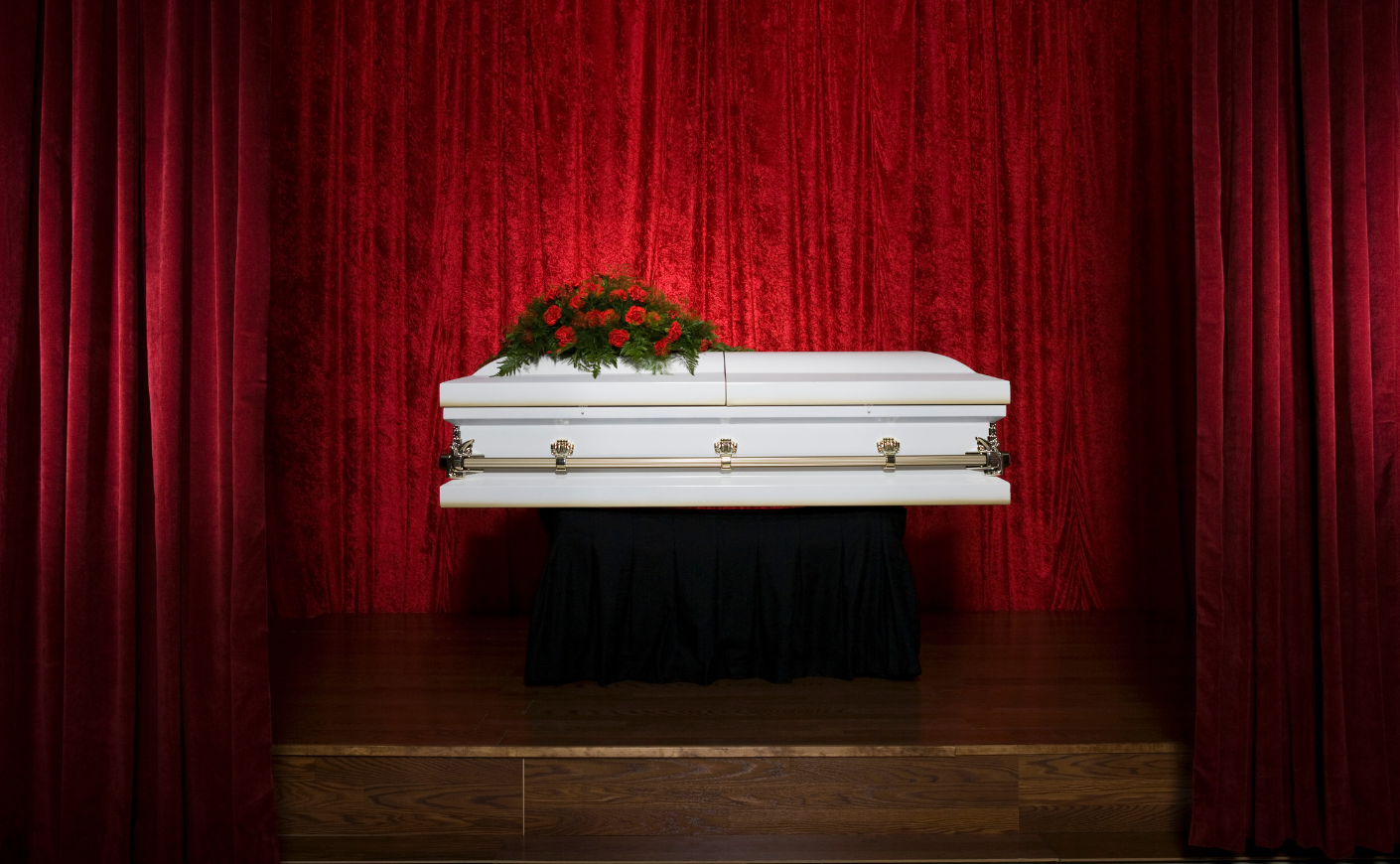What’s it like to die?
No one will ever know the answer — or, at least, they won’t be able to tell us about it when they find out. But Alua Arthur can describe with great specificity what it feels like to watch someone take their last breath.
“When I get to be there when somebody’s dying, it is the juiciest, most dense, awe-inspiring moment ever,” Arthur says. “Nobody knows why, how, or what’s coming next, but at the same time, it’s light at the doorway of existence. There’s no way to not be profoundly touched by the experience.”
As a death doula, thinking deeply about this most mysterious moment is Arthur’s job, and she talks about it with the reverence one might use to describe a breathtaking work of art.
“As it’s happening, there’s a lot of sadness, obviously, but when life leaves a body and you can tell that person is no longer who they used to be — they won’t speak any more words or make any new memories — it is awe-inspiring,” she says. “There’s an incredible stillness that takes over. Everything becomes so still. And that’s it. Just like that. Life hangs on a breath, and in the space of an inhale and an exhale, it’s over.”
Arthur is the founder of Going with Grace, an end-of-life planning company. Her goal is to help everyone embrace the inevitable with peace and tranquility, but also to aid them in getting their affairs in order and making choices about how they’ll say goodbye. She works with folks of all ages, from older people who are imminently facing death to clients in their 20s who want to start asking some of life’s big questions now, while they have time to ruminate on it all.
Confronting death is a scary thing, and Arthur understands that. But she also aims to prevent her clients from letting that dread overtake the joy of life.
“Fear is totally natural because it’s built into our brains. Fear of death is the thing that makes you not walk all the way to the edge of a cliff,” she says. “It becomes problematic when the fear interferes with life itself.”
So, what is a death doula exactly, and what do they do?
What does Arthur’s work actually look like? It’s deeply personalized and different for every client. She guides families through the process of death, giving them an idea of what they can expect (to the best of her ability), and she also assists with logistical decisions about healthcare, life support, and leaving behind instructions for loved ones.

But really, she digs into whatever her clients need from her. One example was an elderly woman who was estranged from her entire family except for a single granddaughter, and she was hung up on wanting to see her children one last time — but they didn’t want to come. Arthur spoke to the woman’s children to understand their point of view, and from there, her job was not to try and force them to visit, but instead to help her client accept the fact that they weren’t.
“What we were able to do, ultimately, was help grandma dictate a letter to her children to express her apologies and let them know she wished they were there, but she understands their choices,” Arthur says. “I wasn’t able to get the kids there, but we were able to help grandma find a little more peace, and then she started actively dying a few days later.”
How to become a death doula
The paths to becoming a death doula are as varied as the tasks they take on. There is no regulatory body making rules about who can do the work or what kind of experience is required.
On Arthur’s website, she calls herself a “recovering attorney.” She focused on legal aid cases about domestic violence or government benefits, but that work left her struggling with deep depression. During a leave of absence, a chance meeting with a woman who had uterine cancer revealed just how unwilling most people are to honestly engage with the topic of dying. That led Arthur down the path she’s on today, where her legal background is sometimes helpful, but more often she draws upon her on-the-job training, like interning at a funeral home and working with hospice.
Zoie Kujawa, a death doula in Oregon, has a master’s degree in social work, and her experience in that space got her thinking about “the culture of death” in the United States, which made her want to challenge it. “I began to learn about the funeral industry and how it’s set up to profit from grieving people,” she says, “and I do not like big corporations taking advantage of people in their times of need.”

One of her most impactful experiences as a death doula was with a woman who was in hospice, preparing to succumb to her terminal lung cancer. The client was “a little bit anxious, but overall OK with her prognosis,” and her biggest concern was what would happen to her partner of 30 years once she was gone.
“It was about listening to her, offering comfort, and reminding her of all the different people who have been in both of their lives, who are still going to be there,” Kujawa says. “We included [her partner] in the conversation as well, just outlining that there are still all these people here and we’re going to be checking on him. We were making a plan for the one who was left behind.”
Kujawa learned about being a death worker through the training program Arthur designed at Going with Grace. Another doula who took that course is Nic Marrone, a New York-based artist who grew up as a kind of armchair therapist to his family of 12. He began thinking about death at a young age, but he felt a concrete calling to take on this work when his grandmother died in a car accident. She’d spent a decade caring for her ailing husband, and Marrone says his grandmother’s sudden passing gave him a perspective he’d never considered.
“Especially after she took care of my grandfather through Parkinson’s, the first beautiful discovery was: Wow, this tragic, unfair death is actually maybe exactly what she would have wanted, with no one having to take care of her,” Marrone says.
Here’s what dying is like — according to a death doula
Accepting what some might see as tough truths about dying is a crucial part of these doulas’ work. One misconception that bothers them all is the sanitized version of our final moments that we see in the movies.
“I blame Hollywood,” Arthur says. “We’re fed these images of dying people sitting there looking like they did when they were living — not looking gaunt, with grayish skin, sharpened cheekbones, and mouths open. They don’t show any of that. There’s not enough education about what natural death looks like, and working with a death doula is a huge benefit because we can explain what’s happening.”
In many cases, watching a loved one in their last days leaves family members surprised by “the sounds and smells of death,” Kujawa says, and she tells her clients that while the end of life might look unpleasant, medical professionals do all they can to ensure the end isn’t agonizing.
“It’s all very, very normal,” Kujawa says. “Where it might seem like they’re in distress or maybe can’t breathe, they are kept very comfortable, especially in hospice, and they’re not in pain.”

Marrone laments the way Americans are conditioned to be scared of dying, and he thinks we’d all be healthier without the collective understanding of death as something to delay at any cost.
“Honestly, I think our society — culturally, politically, economically — has set up this horrible dynamic of fearing death, while a lot of other cultures might embrace it as part of the cycle,” he explains. “But in this country, we are so hell-bent on pushing for being the best and getting the furthest and doing the most that we may make the end of our lives miserable just for the sake of more time. There’s just a lot of shame around death and going through it.”
Another unfortunate part of the American culture around death is the cost. Beyond the sky-high expense of medical care, funerals don’t come cheap. So is working with a death doula just another unattainable expenditure?
All the doulas we spoke with shared a commitment to making their work accessible for everyone. Pricing varies based on what clients are looking for, but Arthur takes their financial circumstances into account, and those who have the means to pay more allow her to take on others who aren’t so fortunate.
Discussing all this with Arthur, it’s clear she’s a highly empathetic and sensitive person, but she says those qualities can actually be an obstacle to doing her best work. She instructs her trainees to “find their edges” — meaning they should remember what differentiates them from someone who’s actually experiencing death.
“When I think I can feel what the other person is feeling, I’m making it up. I’m filling that space with my imagination because I don’t know what it’s actually like,” she explains. “And that can be invalidating to the person who’s dying. Empathy often says, ‘I know what you’re experiencing,’ whereas compassion says, ‘I’m not really sure I know what you’re feeling, but I’m going to be here with you.’ The death doula has to come from compassion.”
She doesn’t know what it’s like to die yet, but Arthur understands well that it’s only a matter of time until her day comes, and she’s thought a lot about how it might play out. She admits it’s entirely possible she’ll be on a hospital bed screaming with panic, because who knows what might happen? But what she envisions is entirely different, and her description of it makes a strong case for the idea that, with a little intentional planning, death doesn’t have to be so frightening after all.
“What I’d really like is to be able to die outside,” Arthur says. “My ideal would be on a deck someplace, where I can see the trees. I’d love if it were around sunset. I want to watch the sky change and see the oranges and purples and blues. I want to hear a little bit of running water. I want my loved ones around. I don’t want any machines. I don’t want any medical intervention at the end. I just want to surrender to whatever it is that may be coming, as peacefully as possible.”









